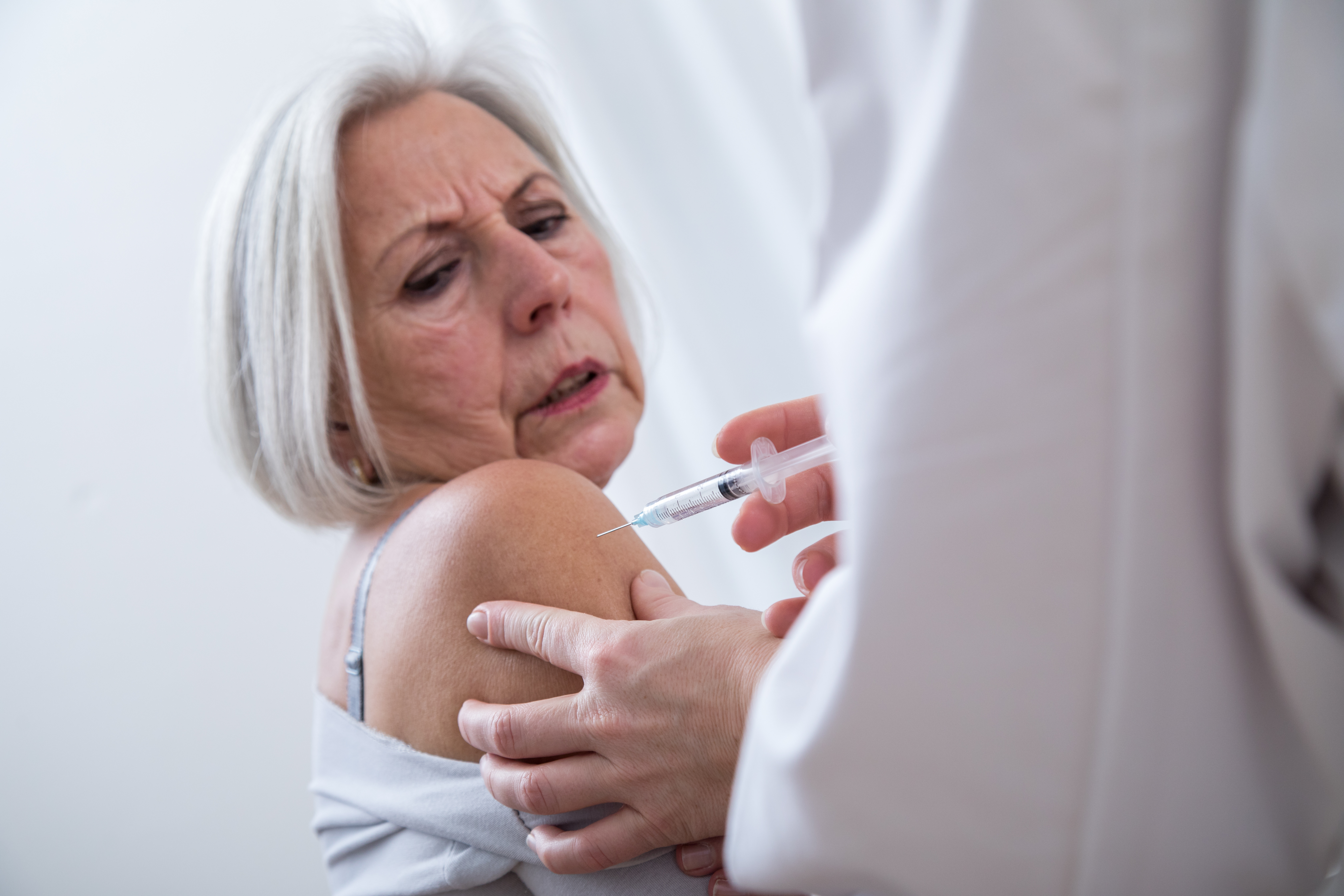It is a natural process that the immune system weakens with age and is no longer adapted to fight viruses and bacteria. Increased risk of serious or even fatal illness.
Anja Kwetkat, chief physician at the Geriatrics and Palliative Medicine Clinic at Osnabrück Hospital in northern Germany, said that indeed, “despite vaccines, infections cannot be completely avoided.” But with adequate protection, the infection is less severe.
What vaccinations or boosters should I get? This is a topic that needs to be discussed with your GP, taking into account your pre-existing conditions. Here are five important vaccines for people over 60:
1. Flu
According to the recommendations of the Standing Committee on Vaccines (Stiko) of the Robert Koch Institute (RKI), Germany’s infectious disease control agency, people over 60 years of age should receive an annual influenza vaccine. Vaccination not only reduces the risk of severe illness but also reduces complications from the flu in older adults. These include heart disease, stroke and pneumonia.
People over 60 should get the high-dose flu vaccine, which is more powerful. “For older people, it works better than the regular quadruple vaccine,” Kwetkat said.
2. Pneumococcus
In many cases, pneumococci cause pneumonia, but the bacteria can also cause inflammation of the sinuses, middle ears, meninges, and even sepsis, commonly known as blood poisoning. In the worst cases, pneumococcal infection can be fatal.
Stiko recommends that everyone over 60, especially those with underlying medical conditions, get the pneumococcal vaccine because their risk of pneumococcal infection is four to five times greater than other people.
To reduce risk, older adults should receive at least one pneumococcal vaccine, with a booster vaccine available at age six if their doctor deems it appropriate.
3. Herpes zoster (shingles)
Anyone who got chickenpox as a child is at risk because the virus can remain in the body for life after getting sick. Therefore, in later stages, especially after the age of 60, it may lead to herpes zoster, also known as herpes zoster.
This disease is not to be taken lightly as it causes blisters to form on the skin, such as around the trunk and chest, along with burning pain. A possible consequence is nerve pain that can last for years.
Stiko recommends that everyone over the age of 60 get vaccinated. “To achieve full protection, two vaccinations are required at intervals of two to six months,” advises Anja Kwetkat.
4.Covid-19
In addition to basic vaccinations, Stiko recommends that people over 60 years of age have an annual booster vaccination, at least 12 months after the last vaccination or infection.
“It is possible to get the covid-19 vaccine and the flu vaccine at the same time,” Kwetkat said.
5. Tetanus
Tetanus is a disease caused by bacteria associated with wounds. Affected people experience muscle spasms, which is particularly severe in the elderly. To prevent this, Stiko also recommends that people over 60 get a tetanus shot. Ideally, basic vaccinations are given during childhood. If this is not the case, it must be accepted at adulthood. Tetanus booster vaccine should be given every ten years.
In other countries, it is also recommended:
Early summer meningoencephalitis (TBE)
It is an infectious disease spread through tick bites. The symptoms of the first stage are similar to those of the flu, and those of the second stage are similar to paralysis or even meningitis. Stiko recommends that people over 60 years old only get the TBE vaccine if they live in a risk area or plan to travel to one. Basic immunity is completed through three vaccines. Booster shots should be given every one to two years.

